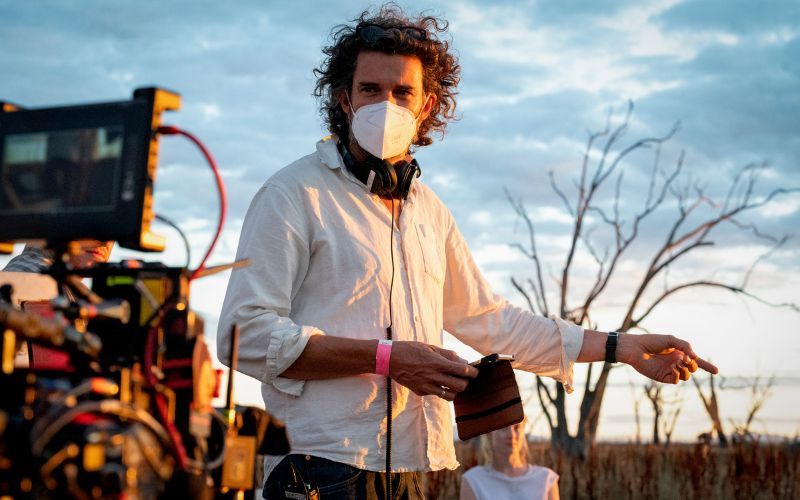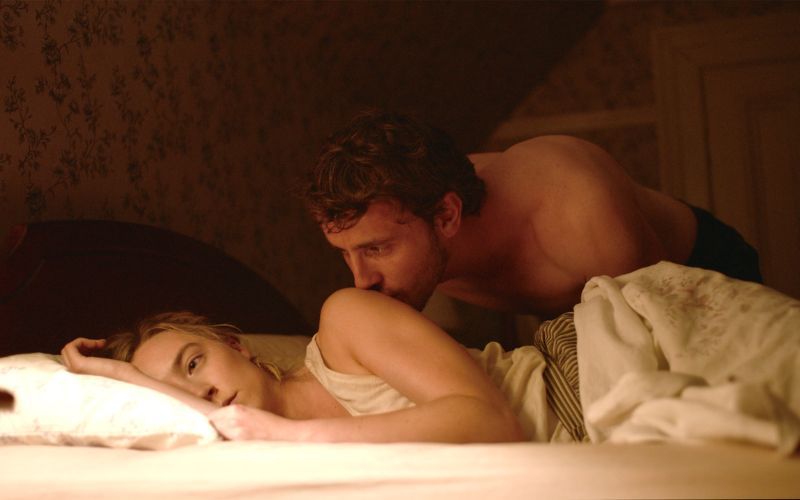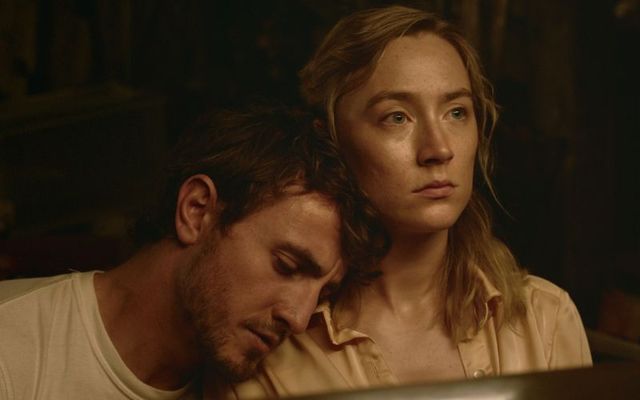Americans are made uniquely uncomfortable by the subject of climate change.
Perhaps it's because it seems to call for a communal response, or because it calls for some self-sacrifice; it also calls for unity of purpose, it calls for political consensus - and it does all in a time when all of those things are in perilously short supply here.
The poet T.S. Eliot wrote: "Humankind cannot bear very much reality." Well, it turns out that's especially true in the feel-good USA. War, terrorism, pandemics, climate catastrophes – those are definite summer bummers and we are simply not psychologically or spiritually equipped for it all, it seems.
For example, most people here seem to have just decided that the coronavirus is over, or even more foolishly they have taken to describing it as “just a flu.” They also seem to think that horrific wars in faraway countries will never personally affect them. They call all talk of climate change “opinion” and they think they can just whistle past every global setback without a thought the way their parents once did.
Maybe it's because this is how Americans handle anxiety – by overlooking it, everyday life is hard enough after all. Just as our planet reaches ever-new political and environmental tipping points, we have developed global technologies to broadcast what can feel like the end times live as we all look on in frozen horror.
But even the model in which we get most of our news now is broken, with far-right billionaires trying to direct and influence all human thought and opinion through the sieves of social media that they buy and sell with only one aim in sight: to make the world safer for men (it's always men) like themselves.
All of this was on my mind – it's on most people's minds – as I settled down to watch Saoirse Ronan and Paul Mescal starring in the effective and deeply unsettling climate change horror thriller "Foe." Luckily, I had scored a ticket to the world premiere, which meant a seat at The Lincoln Center in New York City.
As fate would have it, days earlier the city had a historic foretaste of the kind of collapse that climate change could bring to the Big Apple, with historic flooding closing down the subways and turning our freeways into fast-water tributaries.
It seemed like the ideal moment to watch a film set in 2065 when centuries of industrial pollution have turned the midwest into a scorched hellscape where little grows and the last shower of rain is only dimly recollected.
But early on into the screening, I noticed my fellow filmgoers and critics shifting uncomfortably at the sight of all the ruination on screen. The heat jumped out of each frame, the pollution had turned lakebeds into a luminous pink, the damage to nature looked profound and irreversible. Was that why they were having what felt like a visceral response to such a challenging theme?
In "Foe," the tensions that exist in wider US culture exist in the marriage of the two protagonists Junior (Paul Mescal) and Henrietta (Saoirse Ronan). Teenage sweethearts, whatever it was that once kindled their relationship seems to have flamed out. Now they are – like the country – surviving on fumes, hoping for some kind of miracle whilst growing increasingly faithless themselves.
One of the things that jumps out at me is that "Foe's" director Garth Davis cast two superstar Irish actors as his leads.
“Well first I cast Saoirse and then I had to go and find her a husband," he tells IrishCentral.
"That's when I met Paul Mescal. I wasn't thinking about their shared heritage. But Paul became the obvious choice for me when I met him, and then it was this beautiful serendipity that they're both from Ireland, which just matched the character's backstory, you know, they both lived in the same area of the Midwest and got married straight out of high school. And it just brought a lot of genuine reality to their characters, which I really loved. So yes, I think it was a plus for the movie.”

Garth Davis on the set of "Foe." (Amazon Studios)
The New York City premiere audience was primed for the film's climate themes by the previous catastrophic 48 hours of floods, I tell Davis. But I suspect there is a particularly strong resistance to the idea of climate change here. Any kind of prophetic film that brings the bad news will be resisted, I suspect.
“That's why I wanted to make this movie. I think we're all asleep at the wheel. Like, are we going to sit on the porch with - spoiler alert - a fake wife pretending that the landscapes not dying? Or are we going to face some responsibility?
"What I love about Saoirse's character is that she represents the people that want to we want to wake up and look at where we're going and take some responsibility for our actions."
“I'm also frustrated by society, I'm frustrated by what we get fed constantly. I feel like there needs to be another conversation happening. I mean, the younger generation, when they've watched this movie they say this movie is us. This is the world we're going to be living in. We need change and we're just not doing anything about it. We're just not.”

Saoirse Ronan and Paul Mescal in "Foe." (Amazon Studios)
To this reviewer, "Foe" is about the fate of love, which is to say what we owe to one another and to ourselves. The story combines elements of Mary Shelley, Greek myth, and of sci-fi horror. It asks a lot of a public who are perhaps weary of being asked for anything and it deserves more serious consideration than it has to date inspired.
We have become adept at soothing our fears with technology - the film reminds us - but technology alone cannot save us from what's coming.
Only a clear-eyed and truthful response to the dangers we can confront now - or later – will make a significant difference, but as reactions to the bad news on the global climate delivered by this haunting film show, we don't have much of an appetite for reality yet.




Comments